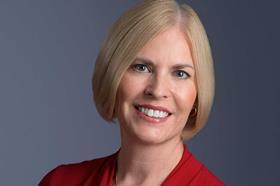
International Women’s Day is a useful moment to take stock of the progress we’ve made towards gender equality and how far we’ve got to go – and 2019 is a particularly important year for women working in the law.
In 1919, the Sex Disqualification (Removal) Act was passed, granting women the legal right to qualify as solicitors and barristers, serve on juries, act as magistrates and receive their university degrees.
Over the past one hundred years, the legal profession has made great strides in terms of gender equality, but women are still not reaching senior leadership positions in equal proportions to men – despite representing more than 60% of new admissions since 1990.
Today, women comprise 62.2% of new entrants to the profession but only 30.8% of partners in private practice.
This disparity between the numbers of women entering the profession and reaching the top levels is true of every region in England and Wales but is particularly pronounced in Greater London and some of our largest law firms – where it is rare to find more than 15% female ownership.
These figures are not shifting quickly, and we wanted to find out why. Over the past year, we undertook a wide-reaching global survey on women in the law and held around 230 roundtables with women and then with male champions for change to discover the barriers to women’s career progression.
To mark International Women’s Day 2019, we have released our Women in Leadership in Law report with the findings from our women’s roundtables.
The ‘Influencing for impact: the need for gender equality in the legal profession’ report provides some significant insights from the thousands of women who attended our roundtables and highlights some of the solutions to the main issues women face in the workplace.
The report identifies many obstacles to women’s career progression such as: unconscious bias, unequal remuneration, unacceptable work-life balance and many aspects of law being male-orientated.
Indeed, 52% of respondents to our 2018 survey identified unconscious bias as the greatest barrier to women’s career progression.
Of course, everyone has unconscious biases and it is incredibly problematic if we do not acknowledge and check our own biases when making important decisions about other people’s careers.
Over the course of the roundtables - and I was privileged to facilitate more than 40, up and down the country and in 15 different jurisdictions myself - I heard many tales of women being treated differently and negatively because of their gender. This was particularly evident in the very narrow definitions of what effective leadership looks like.
Many women reported that firms often favour traditionally ‘male’ traits -such as being decisive, strong and assertive – and undervalue more stereotypically feminine characteristics – such as developing others and team-building.
These biases make it difficult for both women and men who do not fit this definition to progress at the same rate as those who do exhibit these characteristics.
Where gender intersects with protected characteristics, these biases become even more pronounced. In 2018, only 4.7% of partners in private practice across England and Wales were BAME women and yet over 57.1% of BAME solicitors are women.
Women with more than one protected characteristic – such as BAME women, those from the LGBTQ+ community and women with disabilities – experience double or triple barriers to progression, making it even more difficult to break the glass ceiling.
For firms to diversify at senior levels, change has to come from the top. Partners need to lead by example and commit to strategies which develop inclusive work cultures, enable all to progress, promote employees based on an inclusive definition of merit and continually combat unconscious bias.
Unequal remuneration was also identified as a concern across the profession – over 55% of roundtable participants felt that the pay and reward systems in their organisation are not transparent - many roundtable participants were unclear how salaries and bonuses were calculated.
A number of women said that there are not equal opportunities for them to achieve pay rises and that female solicitors are often tasked with more administrative work or received less support than male colleagues at the same level.
Some 91% of respondents to our 2018 survey cited flexible and agile working as key to improving diversity and gender equality in the profession.
Interestingly, this emerged as more of a generational than a gender issue as many women talked about their millennial male peers also wanting flexibility in their working life.
If flexible working is to be effective, it must be extended to everyone – irrespective of their seniority, gender and caring responsibilities – and employees must be rewarded on an output basis rather than the number of hours spent in the office.
Indeed, having the right policies in place and making these effective is key to shifting the needle. For example, having blind recruitment, diversity (and gender balance) on any decision-making body, work allocation policies all make a significant difference.
To drive equality to the most senior levels, firms across the country will need to place diversity at the heart of business decisions and work together to ensure that in another hundred years’ time, gender equality in the law is a given rather than a conversation.
Please find the link to our report here. The report is full of insights and I hope you will find it useful.
We will also be reporting on the outcomes of our men’s and international roundtables in May.
In June, we are distilling all that we have learned into our final set of toolkits which tell firms and businesses exactly how to make the necessary changes. These will be launched at our international symposium on 20 and 21 June details of which can be found here.
I hope to see as many of you there as possible!
Christina Blacklaws is president of the Law Society of England and Wales































2 Readers' comments